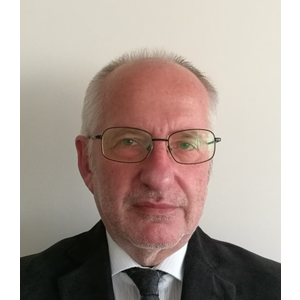

The Embassy of the Slovak Republic in Beirut diplomatically, consularly and economically covers the territories of Lebanon, Iraq, Jordan and Syria. The mission of the Embassy is to represent and protect the rights and interests of the citizens of the Slovak Republic and the EU in accredited countries. We support the development and deepening of bilateral political, economic, cultural and social relations of mutual interest as well as the deepening of official contacts at the highest level between the Republic of Slovakia and countries where the embassy is accredited. An even more important mission is also a quality and, in particular, positive presentation of the Slovak Republic (also in the economic field) and the creation of a good name for our country.
LEBANON. The market is a forward-looking and large-scale outlet for various kinds of goods, services and investments that are re-exported to Arab countries in particular. Lebanon is a country that mainly creates its GDP in services (banking, business and tourism). Although it represents a small market with approx. 3,8 million population, with regard to its underdeveloped production, pose the appropriate prerequisites for the sale of food and consumer goods. The sustainable construction growth represents the possibility for Slovak companies to export various machines used in construction, materials and other products related to the construction and equipping of households and tourist facilities. IRAQ. The most prosperous industries and goods for trading, investment, privatization and development projects are: energy engineering, ecology, oil and gas production and technology, transport engineering, construction machinery and equipment, water purification and treatment plant, equipment for airport modernization and equipment, industrial production and processing of building materials, transport infrastructure, passenger and goods vehicles, trolleybuses and trams, metro kits (prospective), medical equipment and materials, hospitals and policlinics, pharmaceuticals, machinery and equipment, equipment And equipment for armed forces. JORDAN. Jordan Given the relatively limited domestic production, there is space for export to Jordan in the chemical, pharmaceutical, fertilizer, building materials, food and textiles, building materials and engineering industries. Significant growth is recorded in environmental and information technologies, and the pharmaceutical industry is developing in particular. Jordan further extends the mining and processing of phosphates and potash. Water management projects, including the construction of cleaners and potable water treatment, irrigation systems, pumps, as well as energy and renewable energy projects (transformers, power lines), also have long-term priority. The country has long been dependent on energy supplies from abroad and has thus begun to initially develop the energy market. In this near future, Jordan will develop not only the extraction of slate deposits but invests considerable resources in renewable and environmentally friendly energy sources, and in particular the use of the solar potential of the country. In addition to the potential for the export of passenger cars, paper, dried milk and metallurgical products, there are possibilities for exporting health care products. SYRIA. Syria All commercial and economic activities in Syria represent an increased risk resulting from the fact that civil war is taking place in the country. Part of the territory is not under the control of the Syrian government and there is erosion of state structures. It is therefore not possible to guarantee the standard course of trade or economic cooperation. In addition, the EU applies a broad range of sanctions to Syria, the observance of which is binding on economic operators in the Slovak Republic. The sanctions concern a number of areas - weapons, oil and petroleum products, investment, the financial sector, banking, insurance, commercial banks, travel restrictions for some people, freezing of financial assets for Syrian organizations and companies, as well as individual Syrian entrepreneurs.